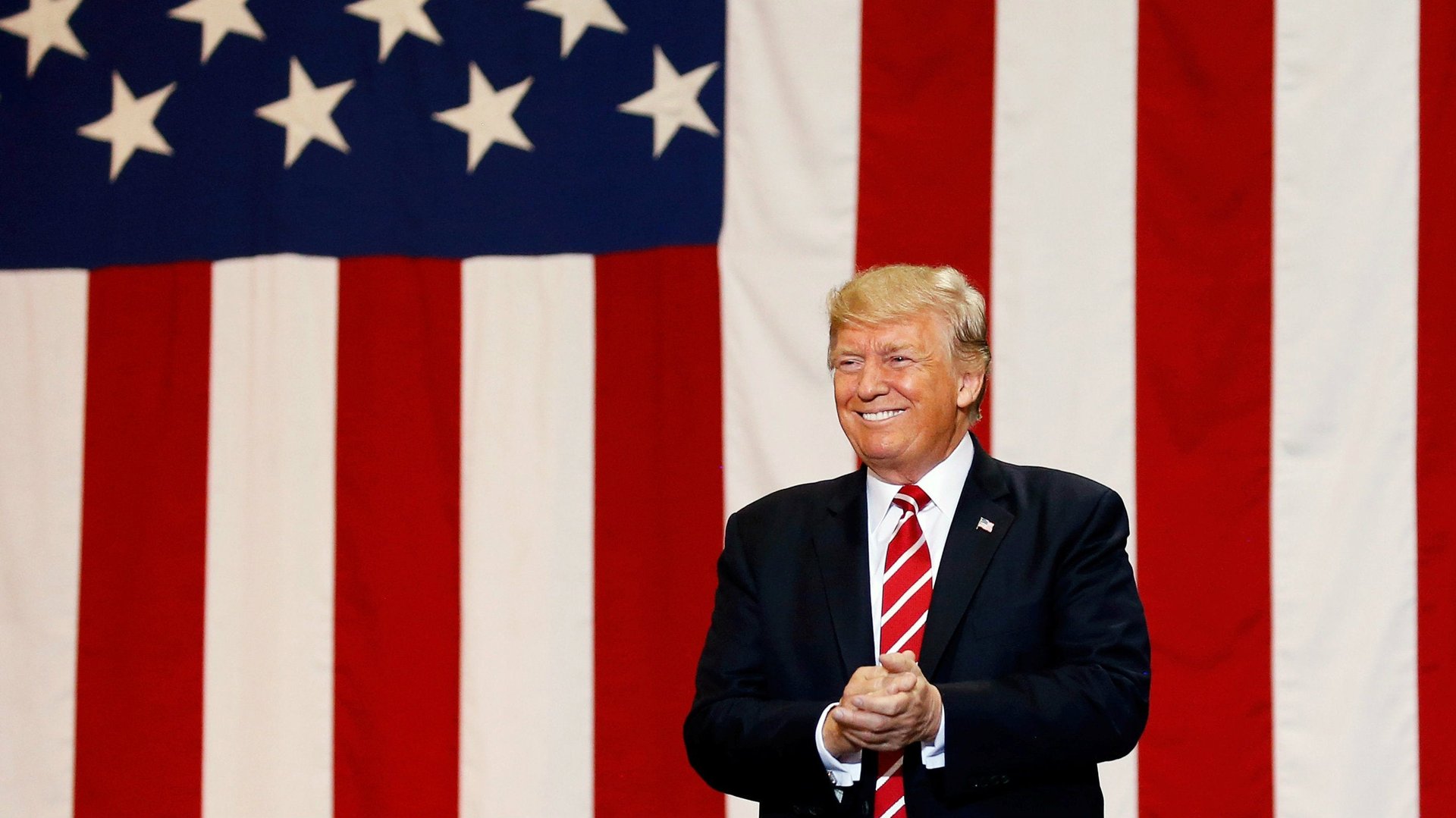Don’t worry, Trump probably won’t default on the debt. Right?
The US faces two momentous fiscal decisions next month. First, avert a government shutdown—to keep the bureaucracy open, Congress needs to approve spending plans by Sept. 30. President Donald Trump, however, has threatened to force a shutdown unless funds are set aside for a border wall with Mexico, which lawmakers are reluctant to approve. And second, avoid a default—the US debt limit of approximately $20 trillion must also be raised at around the same time.


The US faces two momentous fiscal decisions next month. First, avert a government shutdown—to keep the bureaucracy open, Congress needs to approve spending plans by Sept. 30. President Donald Trump, however, has threatened to force a shutdown unless funds are set aside for a border wall with Mexico, which lawmakers are reluctant to approve. And second, avoid a default—the US debt limit of approximately $20 trillion must also be raised at around the same time.
Shutdowns are disruptive and reflect poorly on the US’s ability to govern itself, but a debt default would be a global catastrophe. And while the likelihood of such a thing is extremely remote, some traders have begun avoiding Treasury debt (paywall) due to be repaid in October. Traders did the same thing in 2013 when then-president Barack Obama dueled with Republicans over a budget blueprint and the borrowing limit. Yet another impasse in 2011 was part of the reason why Standard & Poor’s stripped the US of its AAA credit rating.
Raising the debt limit simply allows the government to pay the bills on spending that Congress has already approved. Last month, Treasury secretary Steven Mnuchin said the budgeting process and debt limit, so routinely prone to brinksmanship, “needs to be looked at,” according to Reuters. “Once we’ve agreed to spend the money, we should make sure that the government can pay for it,” he told the House Financial Services Committee.
Raising the debt limit is the job of Congress, and it’s possible the new spending measures and the debt limit will be packaged together. That could be a problem for Trump, who insists on funding for his border wall.
Wall Street’s credit-default swap traders have ever-so-slightly increased their bets that the US will renege on some part of its debt, according to Bloomberg. (Credit-default swaps are a kind of insurance against default on bonds.) Moody’s Investors Service is still unconcerned. The credit rating company, which still assigns the US a top credit grade, believes “the probability of the US missing a debt payment is low,” and that interest payments would be prioritized even if the borrowing threshold isn’t raised. Fitch, another credit rating firm, is less sanguine and has warned that failing to raise the debt limit in a timely manner could jeopardize its own AAA assessment for the US.
Trump ran for office on his background as a captain of industry, touting his companies’ four bankruptcies as shrewd business maneuvers. The US, on the other hand, has made the full faith and credit of the federal government a foundation of its policy, going back to the time of Alexander Hamilton. As far as the debt limit is concerned, the government really shouldn’t be run like a business.